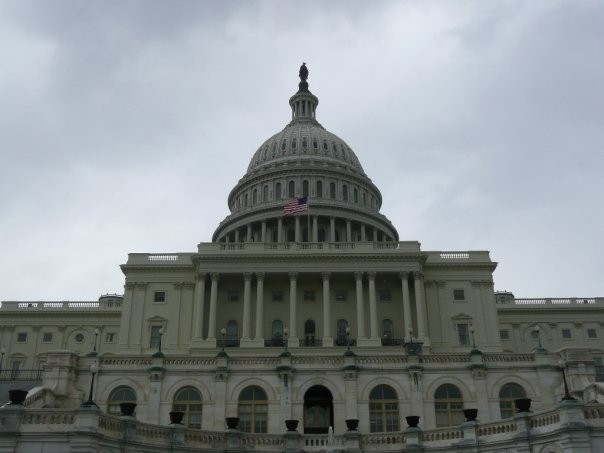Better Late Than Never FINRA Proposal To Protect Small Investors Should Be Broader
Post on: 11 Май, 2015 No Comment

Better Late Than Never, FINRA Proposal To Protect Small Investors Should Be Broader 0 comments
Nov 9, 2014 4:44 PM
Better late than never, but the FINRA proposal to protect small fixed income investors should be broader
What is the new proposal ? The new proposed FINRA rule requiring brokers to disclose the sales markup they charge small investors on fixed income bond transactions is long overdue. FINRA is considering requiring brokers to disclose the SPREAD the client was charged on bond transactions under $100,000 notional. For instance, if a small client paid $104 for corporate bonds of Apple Computer, he is NOT charged a commission. Instead, the dealer sold him bonds as PRINCIPLE and charged a MARKUP. However, the dealer went and purchased those bonds in the open market at a price much less than $104, and right now does NOT have to disclose his (the dealers) cost to the client. What current regulations protect the small client? None, except the SEC 5% markup rule, which isn’t a rule, but a GUIDELINE. That guideline suggests that brokers take no more than 5% of a markup on a client bond transaction. That’s quite a lot of leeway for the broker- 5% is about twice the yield on the 10 year US Treasury Bond.
FINRA has fallen short in protecting small investors in fixed income securities: Up until now FINRA seems to have been more concerned about promoting transparency in the institutional bond market, where large money managers and hedge funds transact with dealers. One would think those hedge funds and large money managers like mutual funds and pensions would have the upper hand on information versus dealers, and that FINRA would spend its time protecting small investors. In that market, institutional clients can gather price and transaction transparency through the TRACE reporting system, which requires the dealer to publicly print the trade to the system, revealing the transaction price to the public. TRACE, however, isn’t available to small investors without access to expensive subscription IT systems like Bloomberg. FINRA recently expanded TRACE to cover all non-registered !44A bonds, in addition to registered bonds, in order to further protect hedge funds and other large institutional clients.
The trading in small bond transactions is so lucrative that major bulge bracket banks and dealers in corporate and high yield bonds are building what they call the odd-lot desks, which are groups of traders that solicit the small quantity order flow from the small brokers and advisors who face the small investors as clients. The small advisor accepts the order from the small client and then executes with the larger broker-dealers, keeping a markup for the broker. Despite the small size of the trades (roughly $100,000 notional), the spread on the trades is so wide and the amount of trades so voluminous, that it’s worth the time for the largest banks.

2 ways FINRA can and must EXPAND the proposal:
- FINRA should disallow brokers from claiming trades are no commission when brokers are earning a spread/markup and end the fallacy of no commission. Small investors are often told they can trade fixed income at no commission or cost to them. True, the legal definition of a commission is only charged when a dealer acts legally as agent. However in the case of bond transactions, the dealer is acting as principal and charging a markup or spread, which the client never sees. The profit for the broker isn’t legally defined as a commission. The fact that brokers can use this no commission claim is a travesty. There is a true cost to the client, and the client doesn’t differentiate whether the broker acted as agent or principal.
- FINRA should ensure small clients have access to TRACE and the same price transparency institutional clients have. FINRA should requires brokers provide TRACE data on bond pricing and trades over low cost information systems, or on the same websites where they provide free equity trading and price data. The practice of dealer quoting of bonds in yield terms to small investors has to end . No dealer quotes a bond to a customer in yield terms, or the income earned if held to maturity. Dealers quote bonds in dollar-price terms, or on the case of investment grade bonds, they will quote them as spread-over-Treasury. In the end, the bond settles in dollar price terms, not yield, and that dollar price is reported to the TRACE system. Except of course, small dealers and advisors who cover small clients. When a small client calls a broker on a bond transaction, the broker will quote that price as its yield to maturity. He will not name a dollar price. This facilitates customer confusion, since small clients often don’t have the skills to convert a yield quote back into dollar price terms. and see how much they were marked up.
FINRA relief for small clients is a long time coming. For a broker to charge up to 5% spread or markup on a bond transaction is a travesty in a world where the 30 year Treasury only yields 3.25% and the 10yr UST 2.6%. Institutional clients often pay and eighth or quarter of a point in markup, or .125- .25%. The months or years it requires the small client to earn back that large markup by receiving coupon payments on the underlying bond, is far too long. Now’s the time for FINRA to focus on the people really being raped on fixed income bond trades.














